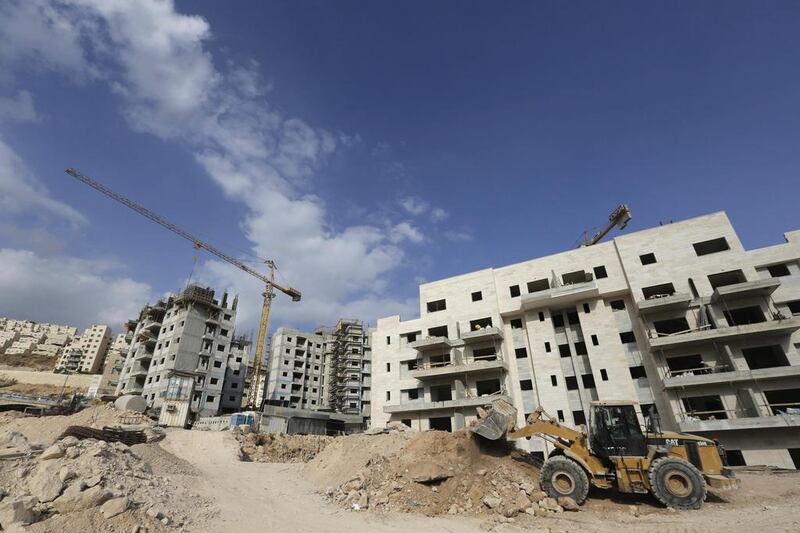RAMALLAH // Israeli plans for 24,000 new settler homes torpedoed the Palestinian peace talks today.
The entire team of Palestinian peace negotiators resigned in protest, even after a wrongfooted Israeli prime minister Benjamin Netanyahu ordered the cancellation of the new homes.
The Palestinian president Mahmoud Abbas had said he would declare the peace process over if they went ahead.
Negotiator Mohammed Shtayyeh said the team quit in response to “increasing settlement building and the absence of any hope of achieving results”.
Mr Shtayyeh held Israel “completely responsible for the failure of negotiations, because of the continuation and escalation of settlement building”.
Israel’s housing ministry published plans on Tuesday to build about 24,000 apartments in settlements across the West Bank and east Jerusalem.
Hours later, amid concern in Washington and Palestinian anger, Mr Netanyahu ordered a halt to the projects and said he knew nothing about them.
Mr Netanyahu said he feared such settlement activity could trigger an international outcry.
Mr Abbas said yesterday the talks could continue even if the Palestinian negotiators stuck to their decision to resign.
“Either we can convince them to come back, and we’re trying with them, or we form a new delegation,” he said.
The chief Palestinian negotiator, Saeb Erekat, said yesterday that the sessions with Israel were frozen. “In reality, the negotiations stopped last week in light of the settlement announcements last week,” he said.
It is the second time Mr Erekat and Mr Shtayyeh have resigned – they said on October 31 that they would leave their posts, though they later returned at the president’s request.
Another negotiator said: “Abbas has a number of choices here – he can refuse or accept and form a new delegation, or demand a new negotiations mechanism.” Indirect talks could resume through a US team.
Following mediation by Washington, direct talks resumed in July after a three-year hiatus that was due primarily to settlement expansion.
Since then Israel has several times announced plans to build thousands of new settler homes in the occupied West Bank – territory the Palestinians require for their future state under any peace deal.
Observers say Mr Netanyahu’s order to scrap the latest sttlement plan was driven by Israel’s bid to scupper an Iranian nuclear deal.
Mr Netanyahu publicly forced his housing minister Uri Ariel, who had approved the plans, to back down after drawing US condemnation for a settlement project the Palestinians warned would end a fragile peace process.
Mr Netanyahu told Mr Ariel the plan “creates an unnecessary confrontation with the international community at a time when we are making an effort to persuade elements in the international community to reach a better deal with Iran”, his office said.
* Agence France-Presse, Bloomberg News and Reuters





